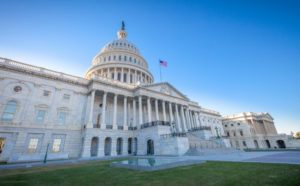
The False Claims Amendments Act of 2021, S. 2428, now before the Senate, aims to eliminate loopholes that, in some cases, may allow defense companies and other firms to avoid financial liability in cases in which they knowingly supply defective equipment but are not found financially liable by the courts because the contractor team is the sole supplier of a given system. Last Oct. 28, the Senate Judiciary Committee advanced S. 2428 to the Senate on a 15-7 vote. Republican…














